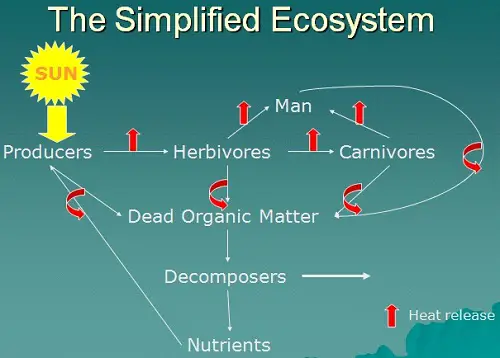While browsing the literature you may have encountered the phrase “ecosystem management”. While this set of words may be commonly used, many find it vague and confusing at times. Here is a back to basics explanation to provide you a solid foundation for further study of this concept.
Ecosystem management, while discussed in literature or articles both online and offline, is a vaguely defined phrase that many students find confusing. Perhaps the main reason for its being is the continuing degradation that nature experiences with previous modes of natural resource management.
To simplify matters and to have a clearer view of ecosystem management, one approach is to break this concept down into manageable bits of information. If things become complicated, it is sensible to go back to the basics.
My approach then is to define ecosystem and management separately and draw out the principles and meanings from each of these basic definitions to eventually combine the two words “ecosystem” and “management” into the phrase “ecosystem management”.
What is an Ecosystem?
The definition of the ecosystem has been in the literature for long. Although there are many versions of what ecosystems are, the best definition I could surmise from the various literature, readings, and insightful thinking on the environment which I thought most appropriate is this:
An ecosystem is a set of interacting components working harmoniously together to acquire, produce and transfer energy to attain sustainability.
The interacting components are the plants, non-living things and animals (humans included) within that ecosystem. These components work together in a harmonious manner such that the whole set composing the ecosystem is able to acquire, produce and transfer energy that makes the whole system run on the long term or simply make it sustainable.
The main source of that energy that drives the ecosystem is the sun. There is loss of energy in the process of transferring it from one source to another, i. e., from the sun as a major source of energy throughout the components of the ecosystem. The simplified ecosystem in Figure 1 below shows the interrelations.
Notice that not all of the energy coming from the sun is efficiently transferred from one living component of the ecosystem to the other. This is illustrated by the red arrow oriented upwards. Heat as a form of energy is lost into the atmosphere.
Scientists estimate energy loss from each component at 10%. Why is this energy not wholly transferred to the next living component in the ecosystem? That’s mainly because some of it is used by the organism for its own purpose. What are these uses? Well, the organisms have to respire, reproduce, move from one place to another, feed, among other functions that will enable it to survive in its habitat.
Another important thing of the whole ecosystem thing is that without the sun the whole ecosystem would collapse. Plants as the basic components of the ecosystem will not be able to synthesize food and oxygen through the process of photosynthesis. This is why we need to maintain plants by whatever means as these components of the ecosystem lie at the very foundation of human existence. Simply put, plants produce life-giving oxygen without which man could not hope to survive in five minutes or so.
What is Management?
Management is defined differently according to the context by which it is being used. Management in the context of environmental management can be defined in the following manner:
Management is the process or act of getting the different components of a system working together to achieve a desired purpose.
This means, therefore, that management is a deliberate attempt to do something in such a way that a desired purpose is achieved. Whatever the outcome of the action depends on how well management was made.
At this point, it would be now easy to define what ecosystem management is.
What is Ecosystem Management?
Based on the previous discussion, the following definition of ecosystem management can thus be drawn:
Ecosystem management is the deliberate attempt to manipulate the set of interacting components in nature for man’s ultimate benefit.
Yes, the main purpose of ecosystem management is to make the whole management process beneficial to man as the end user and manager of that ecosystem. Thus, whatever man deliberately does to the ecosystem which is stable in itself will define the kind of ecosystem management that will prevail. The key actors of ecosystem management are scientists, policymakers, managers, and citizens tasked with ecosystem management.
The ultimate outcome of ecosystem management will entirely depend on how humans perceive the environment and how he perceives this will have to be handled to serve his needs. If the aim is to sustain the natural processes, then ecosystem management must ensure the least disturbance and maintenance of ecological integrity as much as possible.


